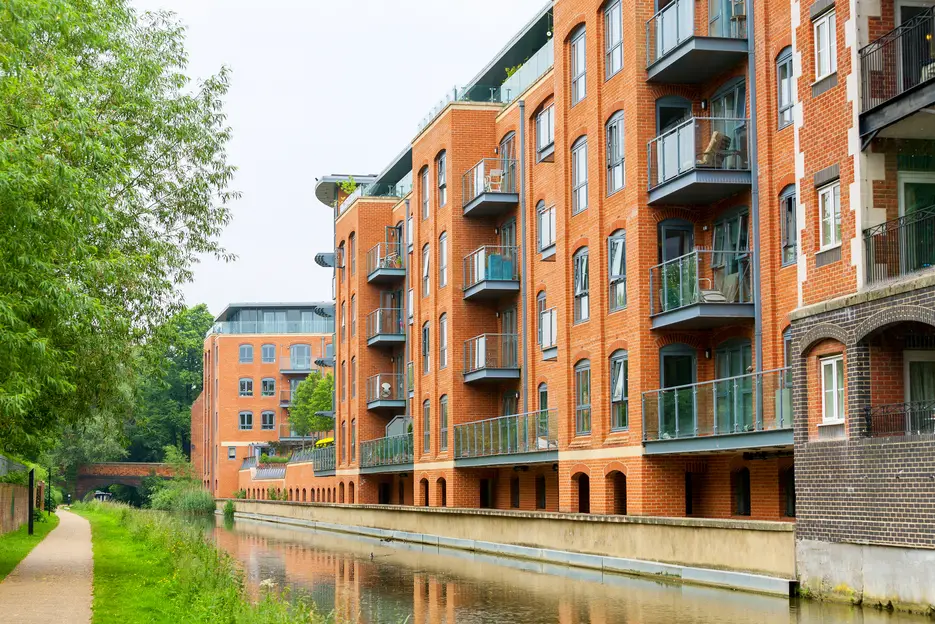Leasehold Reform 2024 – What Are the Implications?
1 March 2024 • 5 min read

The leasehold landscape in the UK is on the brink of a significant transformation, with proposed changes aiming to address long-standing issues and usher in a new era of fairness and transparency. In this blog, Muve shares its insights into the potential impacts of these changes, shedding light on the main benefits, drawbacks, and the likely winners and losers of the changes.
The Bill’s Main Provisions Would:
Make it cheaper and easier for leaseholders in houses and flats to extend their lease and buy the freehold, increasing the standard lease extension term to 990 years, with ground rent reduced to a peppercorn (zero financial value) upon payment of a premium.
The qualifying criteria would be changed to give more leaseholders the right to extend their lease, buy their freehold and take over the management of the building. The transparency of service, administration, estate charges and building insurance commissions would be improved, as well as ensuring leaseholders receive key information regularly.
Leaseholders would be given a new right to request information about service charges and the management of their building. It would also ensure leaseholders are not subject to any unjustified legal costs and can claim their own legal costs from their freeholder.
Freehold homeowners who pay charges for the maintenance of communal areas and facilities on a private or mixed-tenure residential estate would be given the right to challenge the reasonableness of charges and the standard of services provided.
It would ensure a rentcharge owner cannot take possession or grant a lease on a freehold property where the rentcharge remains unpaid for a short period.
Source: https://commonslibrary.parliament.uk/leasehold-reform-in-england-and-wales/.
Proposed Changes: A Welcome Overhaul
The proposed changes are broadly welcomed within the industry. The primary focus is on rectifying perceived injustices related to unfair lease terms. Among the key benefits are more reasonable lease extension premiums, enhanced transparency, and increased fairness for leaseholders.
The proposals are being hailed as the “biggest shake-up in generations”. However, it may take years for any part of them to be implemented, so there is some scepticism that it is more of a pre-election vote-winning tactic. That said, there have been recent leasehold changes, such as the banning of ground rent on new leases and the Building Safety Act 2022, all designed to improve the lives of leaseholders, such that there is clearly a will and a drive for leasehold reform.
However, like any substantial reform, there are drawbacks, such as potential impacts on property values, the practicality of implementing many of the reforms, and the spectre of insolvency for building owners loom large on the horizon.
Winners and Losers in the Leasehold Shake-Up
In assessing the winners and losers of the proposed changes, Muve recognises that leaseholders stand to gain the most. The reforms grant them greater rights, including extending leases or acquiring freeholds, signalling a shift towards commonhold. On the flip side, existing developers and building owners may need help to overcome challenges, grappling with diminished property values and the financial burden of investments yielding no returns.
Contentious vs. Welcome Proposals and Their Effects
The capping or banning of existing ground rents is the most contentious proposal, potentially disrupting property investment funds and individual building owners. However, leaseholders and their mortgage providers will welcome this.
Conversely, welcomed changes include transparency in estate charges and the empowerment of leaseholders to take over the management of the building, contributing to increased home values.
Leasehold professionals, including property lawyers, surveyors, and estate agents, are likely to witness a decline in lease extension requests. This may lead to fewer leasehold transactions as property owners wait for reforms to make the process potentially more accessible and cost-effective.
The proposed changes signal a departure from the perception of leasehold as a mere investment opportunity. Instead, the reforms emphasise the empowerment of leaseholders in property management decisions.
While the proposed changes cover a wide range of issues, the absence of a ban on new leasehold houses raises questions about the government’s commitment to a comprehensive overhaul.
Addressing Current Challenges
The leasehold sector currently faces a lack of movement due to onerous lease terms such as ground rent escalation, excessive service charge costs, and, more recently, building safety concerns. The proposed reforms aim to make leases more appealing but raise concerns about potential management responsibilities deterring potential flat owners.
Regional disparities in leasehold types highlight the need for reforms to prevent certain areas, such as the North West, with a disproportionate number of leasehold houses, from being left behind. With a significant proportion of leasehold flats, London stands to benefit, provided the reforms are swiftly implemented amid challenging market conditions; this should positively impact the property market. Currently, London is suffering due to increased interest rates and building safety challenges.
Looking Ahead: The Next 1-5 Years
The proposed changes are expected to shift towards commonhold structures, presenting challenges in adapting existing leasehold properties and offering opportunities for innovative ownership structures.
Leaseholders should understand their current lease terms and explore options for variation or extension. On the other hand, developers should align with emerging industry trends, such as focusing on greener properties, to position themselves favourably for government schemes and appeal to new homeowners.
In conclusion, the leasehold sector is on the cusp of a significant transformation. While challenges and uncertainties accompany these proposed changes, there is a collective will to bring about positive reform and ensure a fairer, more transparent future for leaseholders and the industry as a whole. As the reform process unfolds, stakeholders must stay informed and adapt to the evolving landscape, embracing opportunities for positive change.
You might also like
Currently, it’s not exactly a case of business as usual with the London property ...
Selling a house can often be a time-consuming and stressful process. From finding the ...

